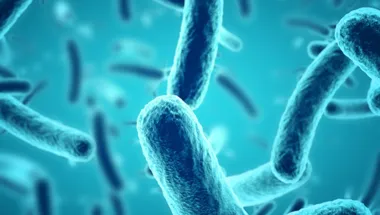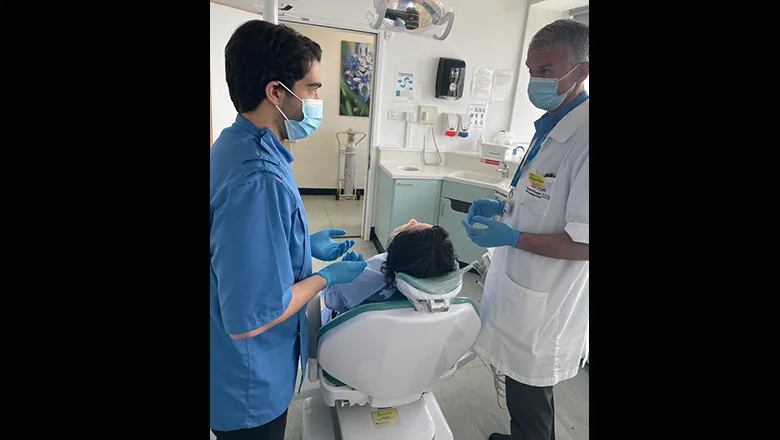
Professor Luigi Nibali
Head of the Centre for Host-Microbiome Interactions
- Professor of Periodontology
- Academic Lead and Director of the Postgraduate Periodontology Program
Research interests
- Dentistry
Contact details
Biography
Professor Luigi Nibali trained in dentistry at the University of Catania, Italy and completed his MSc and PhD in Periodontology at the UCL Eastman Dental Institute (EDI). His PhD topic was ‘Genetics of aggressive periodontitis’. From 2016, he worked part-time at the Centre for Immunobiology & Regenerative Medicine at the Queen Mary University (QMUL) as a Senior Lecturer and then Reader, continuing in private practice limited to periodontology and implant dentistry. He has been on the UK GDC Specialist list for Periodontics since 2007.
Luigi has published widely in periodontal and medical journals and received several periodontal research prizes, including the Fish Prize from the British Society of Periodontology and the Socransky Award from the International Association for Dental Research (IADR). He is on the Editorial Board of the Journal of Dental Research and the Journal of Clinical Periodontology. He is also the author of two books on periodontology and dysbiosis. His clinical focus his mainly on treating complex periodontal cases, particularly deep intrabony defects and molars with furcation involvement. His main research interests are minimally-invasive periodontal treatment, genetics/microbial risk factors for periodontitis and periodontal medicine. Together with his research team, he has proposed the concepts of periodontal infectogenomics and genetic dysbiosis, as part of an attempt to gain better understanding of the relationships between microbial triggers and host response in periodontitis.
He joined King's College London in June 2019 as Academic Lead and Director of the Postgraduate Periodontology program. In 2023 he was appointed Head of the Centre for Host-Microbiome Interactions.
Research

Periodontology and Periodontal Medicine
Research into periodontal and peri-implant diseases with the aim to improve patient care and quality of life.

Centre for Host-Microbiome Interactions
Millions of microorganisms live in and on our bodies forming microbiomes on different surfaces. Researchers in the Centre for Host Microbiome Interactions study our relationship with these bacteria and fungi in health or in oral and systemic diseases such as periodontitis, candidiasis, oral cancer and Alzheimer’s disease.
News
Faculty of Dentistry, Oral & Craniofacial Sciences 2025 Staff Awards
Colleagues from FoDOCS came together at the start of April to celebrate the remarkable, diverse and hugely impactful contributions that individuals and teams...

A Fasting-mimicking diet may reduce inflammation in patients with severe periodontal disease
In a feasibility study by King’s College London researchers, a team explored the potential benefits of incorporating a fasting-mimicking diet together with...

King's College London study finds minimally-invasive non-surgical treatment has positive outcomes in treating intrabony defects
In a new study published in the Journal of Clinical Periodontology, the team from the Faculty of Dentistry, Oral & Craniofacial Sciences at King’s College...

Dietary restrictions could reduce gum disease
New research from King’s College London has emerged that shows calorie restriction (500-1300 calories per day) could be used to reduce gum disease.

Tele-dentistry a viable option for replacing in-person initial consultations, new study finds
A study led by a team of periodontists and psychologists at King’s College London including dentistry consultants at Guy’s Hospital has found that...

Children with immune deficiencies more likely to have gum disease, study finds
Researchers at King’s College London have found that children with Primary Immunodeficiencies have higher prevalence of periodontal (gum) disease.

Exploring the COVID 19 impact on delivering periodontology treatments
Academics and undergraduate students at King’s investigate how COVID-19 has impacted periodontal practice in the UK.

Research

Periodontology and Periodontal Medicine
Research into periodontal and peri-implant diseases with the aim to improve patient care and quality of life.

Centre for Host-Microbiome Interactions
Millions of microorganisms live in and on our bodies forming microbiomes on different surfaces. Researchers in the Centre for Host Microbiome Interactions study our relationship with these bacteria and fungi in health or in oral and systemic diseases such as periodontitis, candidiasis, oral cancer and Alzheimer’s disease.
News
Faculty of Dentistry, Oral & Craniofacial Sciences 2025 Staff Awards
Colleagues from FoDOCS came together at the start of April to celebrate the remarkable, diverse and hugely impactful contributions that individuals and teams...

A Fasting-mimicking diet may reduce inflammation in patients with severe periodontal disease
In a feasibility study by King’s College London researchers, a team explored the potential benefits of incorporating a fasting-mimicking diet together with...

King's College London study finds minimally-invasive non-surgical treatment has positive outcomes in treating intrabony defects
In a new study published in the Journal of Clinical Periodontology, the team from the Faculty of Dentistry, Oral & Craniofacial Sciences at King’s College...

Dietary restrictions could reduce gum disease
New research from King’s College London has emerged that shows calorie restriction (500-1300 calories per day) could be used to reduce gum disease.

Tele-dentistry a viable option for replacing in-person initial consultations, new study finds
A study led by a team of periodontists and psychologists at King’s College London including dentistry consultants at Guy’s Hospital has found that...

Children with immune deficiencies more likely to have gum disease, study finds
Researchers at King’s College London have found that children with Primary Immunodeficiencies have higher prevalence of periodontal (gum) disease.

Exploring the COVID 19 impact on delivering periodontology treatments
Academics and undergraduate students at King’s investigate how COVID-19 has impacted periodontal practice in the UK.

